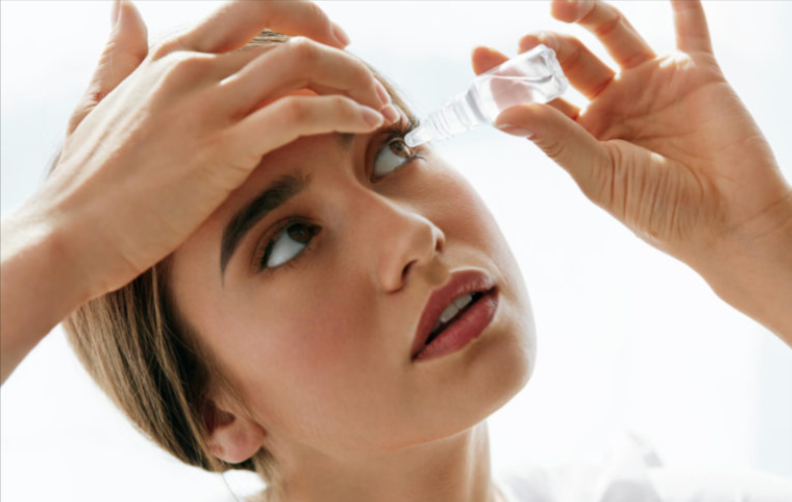Irritated Eyes: When to Seek Care
Eye irritation is a common problem that can result from various causes, including environmental factors, underlying health conditions, or injury.
While many cases of irritated eyes resolve on their own with simple remedies, some situations require prompt medical attention to prevent complications or preserve vision. This guide will help you understand the causes, symptoms, and when to seek care for irritated eyes.
Common Causes of Eye Irritation
Irritated eyes can occur due to numerous factors. Some of the most common include:
- Allergies: Seasonal allergens like pollen, pet dander, or dust mites can trigger red, itchy, and watery eyes.
- Dry eye syndrome: When your eyes do not produce enough tears or the tears evaporate too quickly, they may become irritated and uncomfortable.
- Foreign objects: Dust, dirt, or small particles can get into your eyes and cause irritation.
- Contact lens issues: Wearing lenses for too long or using improperly cleaned lenses can lead to redness, discomfort, and even infection.
- Digital eye strain: Prolonged screen time without breaks can cause eye fatigue and dryness.
- Infections: Conditions like conjunctivitis (pink eye) or blepharitis can cause redness, swelling, and discharge.
- Environmental irritants: Smoke, wind, or exposure to harsh chemicals can irritate your eyes.
- Injuries: Scratches, abrasions, or blunt trauma to the eye can lead to significant discomfort and require immediate attention.
Symptoms of Eye Irritation
The symptoms of irritated eyes can vary depending on the cause. Common signs include:

- Redness
- Itching or burning sensation
- Watery or dry eyes
- Sensitivity to light (photophobia)
- Blurred vision
- Swollen eyelids
- Discharge or crusting
- A gritty or foreign body sensation
While mild symptoms can often be managed at home, certain signs may indicate a more serious problem that requires medical care.
When to Seek Urgent Care for Irritated Eyes
It’s important to know when to seek professional help for eye irritation. Contact an urgent care clinic or an eye specialist if you experience any of the following:
1. Persistent Symptoms
If your eye irritation lasts longer than a few days or worsens despite using over-the-counter remedies, it’s time to consult a healthcare provider. Prolonged discomfort could indicate an underlying condition like dry eye syndrome or an infection.
2. Severe Pain
Eye pain that is sharp, intense, or accompanied by headaches, nausea, or vomiting could signal a serious issue, such as glaucoma, a corneal abrasion, or an infection. Don’t delay seeking medical care in these situations.
3. Sudden Changes in Vision
Blurry vision, double vision, or sudden loss of vision can be symptoms of retinal detachment, optic nerve issues, or other sight-threatening conditions. Immediate medical attention is crucial.
4. Eye Trauma
If you’ve experienced an injury to your eye, whether from an object, chemical exposure, or forceful impact, seek urgent care. Chemical burns or scratches can lead to permanent damage if not treated promptly.
5. Signs of Infection
Symptoms like yellow or green discharge, severe redness, swelling, or a fever may indicate an infection like conjunctivitis or cellulitis. These conditions often require prescription medication to resolve.
6. Sensitivity to Light
Excessive sensitivity to light can occur with conditions like uveitis, keratitis, or corneal damage. These require prompt evaluation and treatment.
7. Contact Lens Complications
If you wear contact lenses and experience redness, pain, or sensitivity, stop wearing the lenses immediately and consult a doctor. Contact lens-related infections can progress rapidly and cause serious complications.
Get the care you need:
Finding Immediate Medical Help: Your Ultimate Guide to Locating the Best Urgent Care Near You
Home Remedies for Mild Eye Irritation
For mild cases of eye irritation, the following remedies may provide relief:

- Use artificial tears: Over-the-counter lubricating eye drops can help soothe dry or irritated eyes.
- Apply a cold compress: A clean, cold washcloth over your closed eyes can reduce swelling and discomfort.
- Practice good hygiene: Avoid touching your eyes with dirty hands, and clean your eyelids gently with a warm, damp cloth.
- Take screen breaks: Follow the 20-20-20 rule—every 20 minutes, look at something 20 feet away for at least 20 seconds.
- Avoid allergens and irritants: Use an air purifier, keep windows closed during high pollen seasons, and wear protective eyewear in dusty environments.
While these tips can alleviate minor discomfort, they are not substitutes for professional care when symptoms are severe or persistent.
Prevention Tips for Healthy Eyes
Preventing eye irritation is often possible with a few simple habits:
- Stay hydrated: Drink plenty of water to maintain tear production and overall eye health.
- Wear sunglasses: Protect your eyes from UV rays and wind by wearing sunglasses outdoors.
- Follow contact lens guidelines: Clean your lenses properly, replace them as recommended, and avoid wearing them for extended periods.
- Maintain a balanced diet: Foods rich in vitamins A, C, and E, as well as omega-3 fatty acids, support eye health.
- Schedule regular eye exams: Routine check-ups can help detect and address potential issues early.
Visit UrgiClinic Urgent Care for Eye Irritation
While some cases of irritated eyes can be managed at home, others require expert evaluation and treatment.
At UrgiClinic Urgent Care, our experienced healthcare professionals are equipped to diagnose and treat a wide range of eye issues, from minor irritations to more serious conditions. Whether you need relief from persistent symptoms or immediate care for an injury, we’re here to help.
Don’t wait until your eye irritation worsens—walk in with us at UrgiClinic Urgent Care today and get the prompt, compassionate care you need to protect your vision and feel your best.













